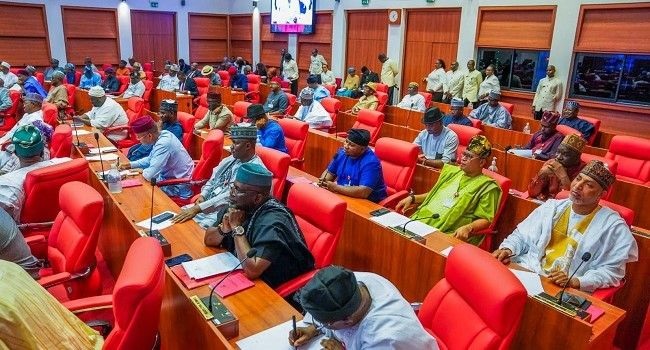By John Moses
The Nigerian Senate on Wednesday passed the second reading of the Electricity Act (Amendment) Bill, 2025, a move designed to address long-standing issues plaguing the country’s electricity sector.
Presenting the bill’s objectives during plenary, its sponsor, Senator Enyinnaya Abaribe (APGA–Abia) explained that the amendments would improve coordination between federal and state governments, reduce regulatory conflicts, and support financial stability in the sector, which is facing severe debt challenges.
The bill also proposes tougher penalties for vandalising critical power infrastructure, clearer guidelines for transferring intra-state electricity responsibilities to state governments, and improved labour relations in the industry.
Senator Abaribe, who chairs the Senate Committee on Power, warned that Nigeria’s electricity supply industry is “hanging on a cliff”, with operational constraints and debts running into trillions of naira threatening to bring the sector to collapse.
Echoing these concerns, Senator Garba Maidoki (APC–Kebbi) questioned the affordability of electricity, observing: “If even a senator struggles to pay the power bill, what hope is there for ordinary citizens?”
Senator Abdulfatai Buhari (APC–Oyo) supported harsher punishments for those who sabotage power assets, stressing that without strong deterrents, vandalism would continue.
Senator Yunus Akintunde (APC–Oyo) criticised outdated transmission infrastructure and raised concerns over the structure of Nigeria’s electricity market, where generation and distribution are privatised but transmission remains state-run.
Senate President Godswill Akpabio praised the Committee on Power’s efforts and expressed hope that the planned public hearing would address the concerns of Nigerians. “Without electricity, industrial growth is impossible,” he noted.
























